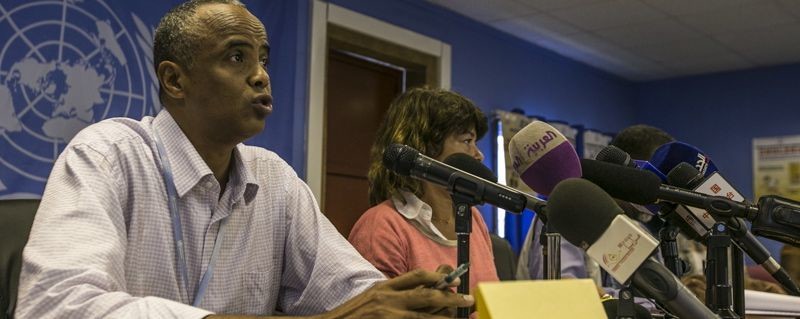The infectious disease cholera continues to spread in South Sudan’s largest city, Juba, with over 670 cases reported, according to the World Health Organization.
South Sudan’s Minister of Health declared a cholera outbreak on 15 May, the first outbreak in the city since 2006-2007.
Dr Abdinaser Abubakar, the officer-in-charge of World Health Organization in South Sudan, told press in Juba today that the number of cases has been rising.
“So far, as of yesterday the 26th, we have over 670 cases that have received treatment both in Juba Teaching Hospital as well as another CTC [Cholera Treatment Centre] which is run by MSF in Gure, and also other facilities within the town,” he said.
Abubakar said that 23 people have died of cholera so far, 13 of them inside of health facilities and the others within the community.
He said the case fatality rate as of today is 3.4, which is “above the average.” The health official said that health workers are working to improve treatment in order to reduce the fatality rate, while also calling for better surveillance in communities so that cases can be referred quickly for treatment.
According to WHO, the majority of cases are coming from the neighborhoods of Northern Bari, Munuki, Juba, Rajaf and Kator, in that order.
Tests performed in a laboratory in Nairobi have confirmed six samples while results are awaited for about 100 other samples. A laboratory will be set up in South Sudan to speed up the testing process.
For his part, UN Humanitarian Coordinator Toby Lanzer warned of the seriousness of the outbreak. In a statement via the social media site Twitter he said it was “hard to forecast the evolution but some [are] warning that we could see 10,000 cases.”
The outbreak is also now confirmed to have spread within one of the UN bases in Juba, where UN-protected populations are considered at-risk because of overcrowded conditions and poor sanitation.
An official of Doctors Without Borders told press in Juba today that they have seen one laboratory-confirmed case within the UN House camp, with eight additional suspected cases.
Dr Abdinaser Abubakar, the WHO official, pointed out that the congestion at UN-protected sites has increased the risk of the disease.
UNICEF, meanwhile, announced at a press conference in Juba today that the health response to the outbreak was expensive, disclosing that the agency has already spent $10 million on the cholera response so far.
Health workers are calling on people to wash their hands before eating, after using the latrine or before cooking.
Photo: Dr Abdinaser Abubakar speaking to press in Juba, 27 May 2014




